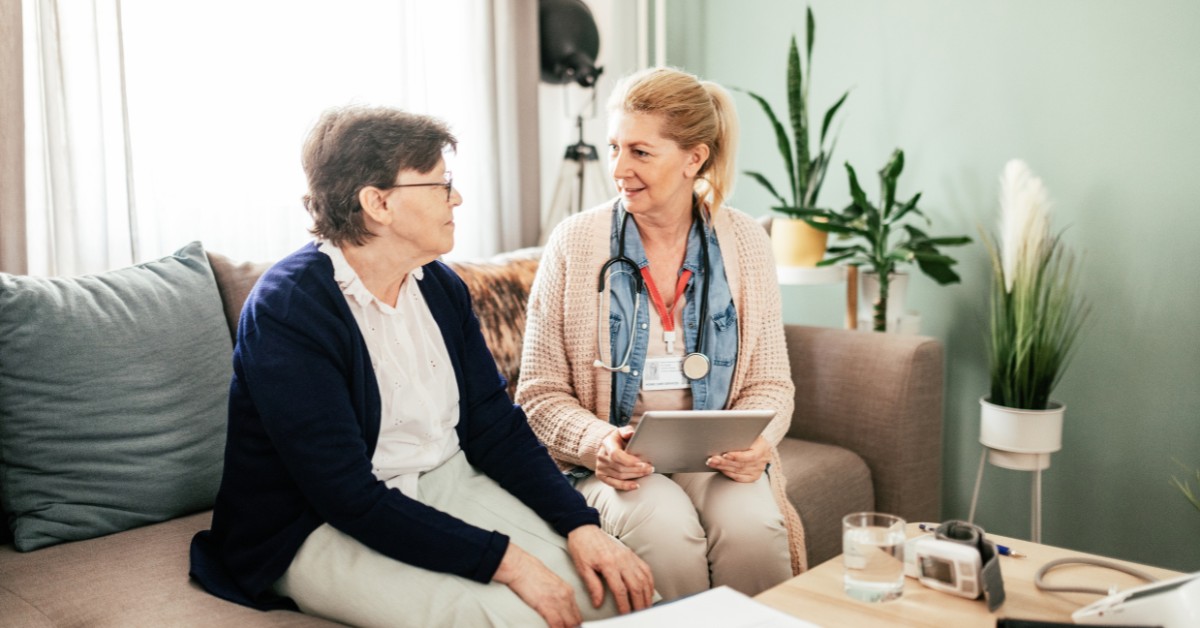Have you ever wondered why your 85-year-old neighbor can still beat everyone at crossword puzzles while someone else’s grandparent struggles to remember what they had for breakfast? It’s one of those things that really makes you think about how our brains age differently from person to person.
The truth is, getting older doesn’t automatically mean your brain stops working well. Some seniors keep their minds as sharp as ever, while others notice changes in their memory and thinking. Understanding why this happens can help families make better decisions about how to support their older loved ones.
What Actually Happens to Our Brains as We Age
When people get older, their brains go through some natural changes. The brain actually gets a little smaller over time, and some connections between brain cells don’t work as fast as they used to. Blood flow to the brain can also slow down a bit.
But here’s the interesting part – these changes don’t affect everyone the same way. Some people barely notice any difference in how they think or remember things. Others might find it takes them a little longer to recall a name or learn something new, but they can still function perfectly well in their daily lives.
The key thing to understand is that normal aging is very different from serious memory problems or dementia. Normal aging might mean occasionally forgetting where you put your keys. Serious memory problems mean forgetting what keys are for.
The Daily Habits That Keep Minds Sharp
People who stay mentally sharp as they age usually have certain things in common. They keep their brains active by reading, doing puzzles, learning new things, or having interesting conversations every day. It’s really that simple – brains that get regular exercise tend to stay stronger.
Physical exercise matters just as much. When seniors go for walks, do gentle yoga, or even just move around the house regularly, they’re helping blood flow better to their brains. Many families find that when their older relatives have proper support at home, they’re more likely to stay active both mentally and physically. Services focused on Home Care in Allentown and similar communities often emphasize this connection between physical activity and mental sharpness.
Social connections play a huge role too. Seniors who talk with family, friends, or caregivers regularly tend to keep their thinking skills sharper than those who spend a lot of time alone. Having conversations, sharing stories, and staying connected to other people gives the brain a workout every single day.
The Hidden Factors That Make a Difference
Sleep quality affects how well senior brains work, but many older adults don’t get the deep, restful sleep they need. Pain, medications, or anxiety can all interfere with good sleep. When seniors sleep better, they often think more clearly during the day.
What people eat also matters more than most families realize. Brains need good nutrition to function well, especially foods with omega-3 fatty acids, antioxidants, and vitamins. Seniors who eat regular, nutritious meals often have better memory and thinking skills than those who skip meals or eat mostly processed foods.
Chronic health conditions can affect brain function too. Things that might seem unrelated, such as hearing loss, vision problems, or heart disease, can actually impact how well someone thinks and remembers. When these conditions get proper treatment and management, mental sharpness often improves.
When Memory Changes Signal Something More Serious
Sometimes memory changes go beyond normal aging. Warning signs include getting lost in familiar places, forgetting the names of close family members, having trouble with basic tasks that used to be easy, or repeating the same questions over and over.
These changes can be scary for families, but early detection often leads to better outcomes. Some memory problems are caused by things that can be treated, such as medication side effects, vitamin deficiencies, or depression. Even when the cause is more serious, getting help early can make a big difference in quality of life.
Creating an Environment That Supports Sharp Thinking
The environment where seniors live and spend their time can either support sharp thinking or make memory problems worse. Familiar surroundings with good lighting, clear pathways, and organized spaces help seniors navigate their daily routines more easily.
Having regular routines also supports brain health. When seniors know what to expect each day and have consistent schedules for meals, activities, and rest, their brains don’t have to work as hard to figure out what comes next.
Stress reduction is another important factor. High levels of ongoing stress can actually damage brain cells over time. Seniors who feel safe, supported, and comfortable in their daily lives tend to maintain better cognitive function than those dealing with constant worry or upheaval.
The Role of Medical Care and Monitoring
Regular check-ups with healthcare providers help catch problems before they become serious. Blood pressure, diabetes, and other health conditions can affect brain function if they’re not managed properly. Medication reviews are especially important since some drugs can cause confusion or memory problems.
Mental health support matters just as much as physical health care. Depression and anxiety are common among seniors but often go unrecognized. When these conditions get proper treatment, cognitive function frequently improves.
Making Smart Choices for Brain Health
Families can take practical steps to support their senior relatives’ cognitive health. Encouraging daily mental activities, helping maintain social connections, ensuring good nutrition, and creating safe, comfortable living environments all make a real difference.
The most important thing to remember is that every senior is different. What works for one person might not work for another, and changes in thinking or memory don’t always mean something terrible is happening. With the right support, many seniors can maintain sharp minds and continue enjoying life well into their later years.
Understanding these factors helps families make informed decisions about care and support. When seniors have what they need to stay mentally and physically active, they’re much more likely to keep their minds sharp as they age.







Leave a Reply